From witnessing its best haul at the 59th National Awards to 'Fandry' drawing in the crowds beyond traditional audiences, Marathi cinema is breaking barriers, especially in terms of language, as Kanika Sharma finds out
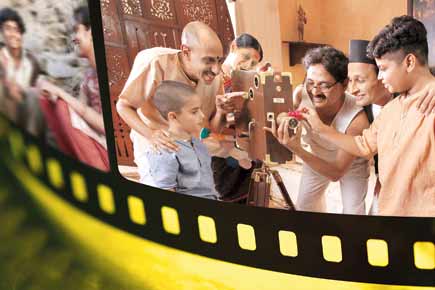
Marathi cinema has always had it heavy on its shoulders, especially when the precedent of such a legacy is Dadasaheb Phalke. Though decked with illustrious names, Marathi films have had it tough since the 1980s as Maharashtrian audiences were the only ones who turned up, despite government support.
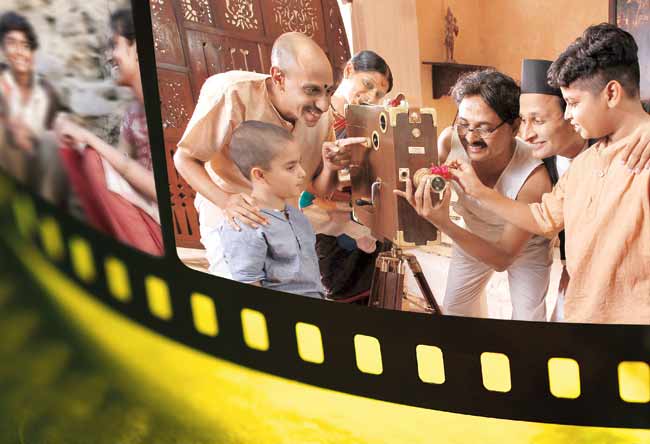
This wasn’t the case earlier, Kapil Bhopatkar, owner of Bharatmata Cinema, tells us, “Marathi cinema has had many downturns. First, with the arrival of the videocassette recorder (VCR), cinema hall audiences became uncertain. Then, satellite television, followed by local Marathi channels and Marathi theatre, posed problems.”
ADVERTISEMENT
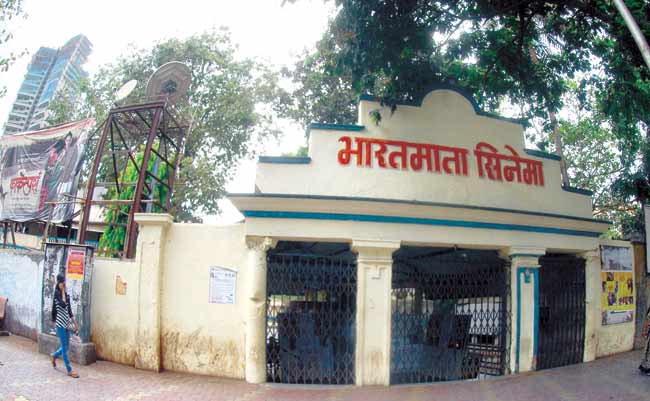
Bharatmata Cinema is the only single screen theatre that shows Marathi films in the city. Pic/Rane Ashish
Bharatmata Cinema, one of the last surviving single-screen cinema halls in Mumbai, established in 1941, serves as a reminder of the times when Marathi cinema had queues of cinegoers snaking pavements. Bhopatkar claims that even Gujaratis, Marwaris and Parsis would watch the cinema during those days.
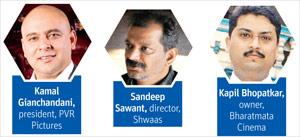
Audience applause
“In the last two / two-and-a-half years, there has been an upsurge in the screening and success of Marathi films. We’ve had films that open with three shows on a Friday and midweek become nine to cater to the increasing interest,” informs Kamal Gianchandani, president of PVR Pictures.
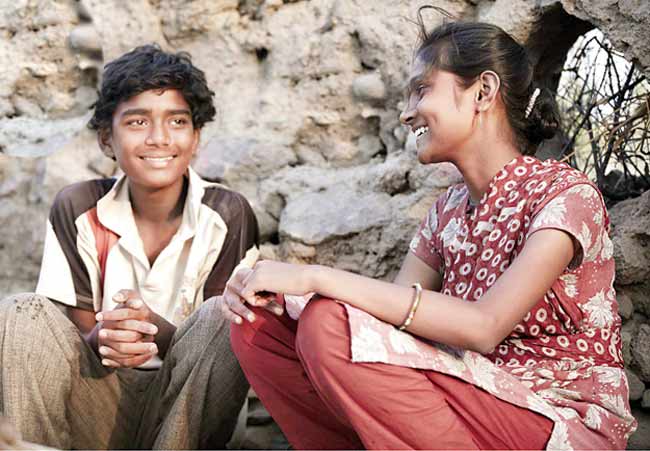
Fandry is a love story with caste politics as background
Evident of a change, Nagraj Manjule’s Fandry that won the Grand Jury Prize at the Mumbai Film Festival was released in unusual places such as Kolkata, Indore, Chennai and Baroda.
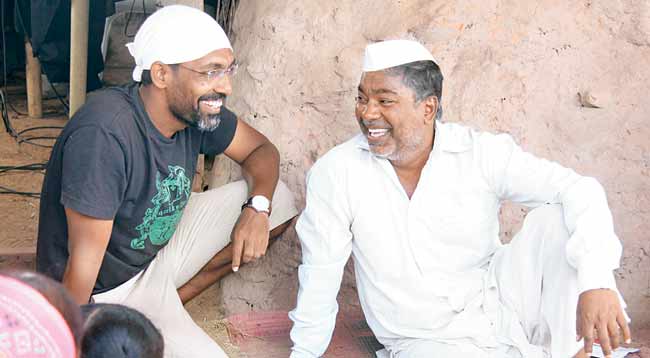
Manjule during the shoot
The actual game changer can be traced to 2004, in the film, Shwaas that triggered the dwindling number of films being made in the industry from 14 to 100 and more. “Marathi audiences have always been used to reading literature, so they appreciate quality,” maintains Bhopatkar.
Mixing it up
“Recently, I watched Duniyadari,” says 21-year-old Sachin Dhivar, who was not attracted to Marathi films as “there was no fun in them” till some time ago. Yet he regards the 2013 blockbuster as an eye-opener which he found as “advanced”.
Sachin Khedekar, a Marathi actor who has marked his presence in both Hindi and Marathi films, gives the expert’s lowdown on this recent development: “If you look at the last five years, none of the films can be said to belong to a single genre.” He adds, “They are all sorts — historical, comical and social.” Naming a few, he shares Kaksparsh, Duniyadari, and Balak Palak.
Raking in the moolah
“Festival screenings help in making the audience aware of your film,” adds Manjule. As the premises of Hindi cinema and regional cinema fades during the selection of films at festivals, Indian films seem to be destined to attain greater heights of viewership. Yet, in order to give it a mainstream release, publicity and promotion will play a vital role, asserts Bhopatkar.
Since Shwaas, which only had word-of-mouth publicity; Manjule’s Fandry is being promoted by the who’s who of Bollywood including Kiran Rao and Rakeysh Omprakash Mehra. As of today, an average Marathi film is being made for Rs 1.5 crore. Bhopatkar still feels that the market for Marathi cinema is almost unexplored and has the potential to give tough competition to Bollywood.
 Subscribe today by clicking the link and stay updated with the latest news!" Click here!
Subscribe today by clicking the link and stay updated with the latest news!" Click here!







